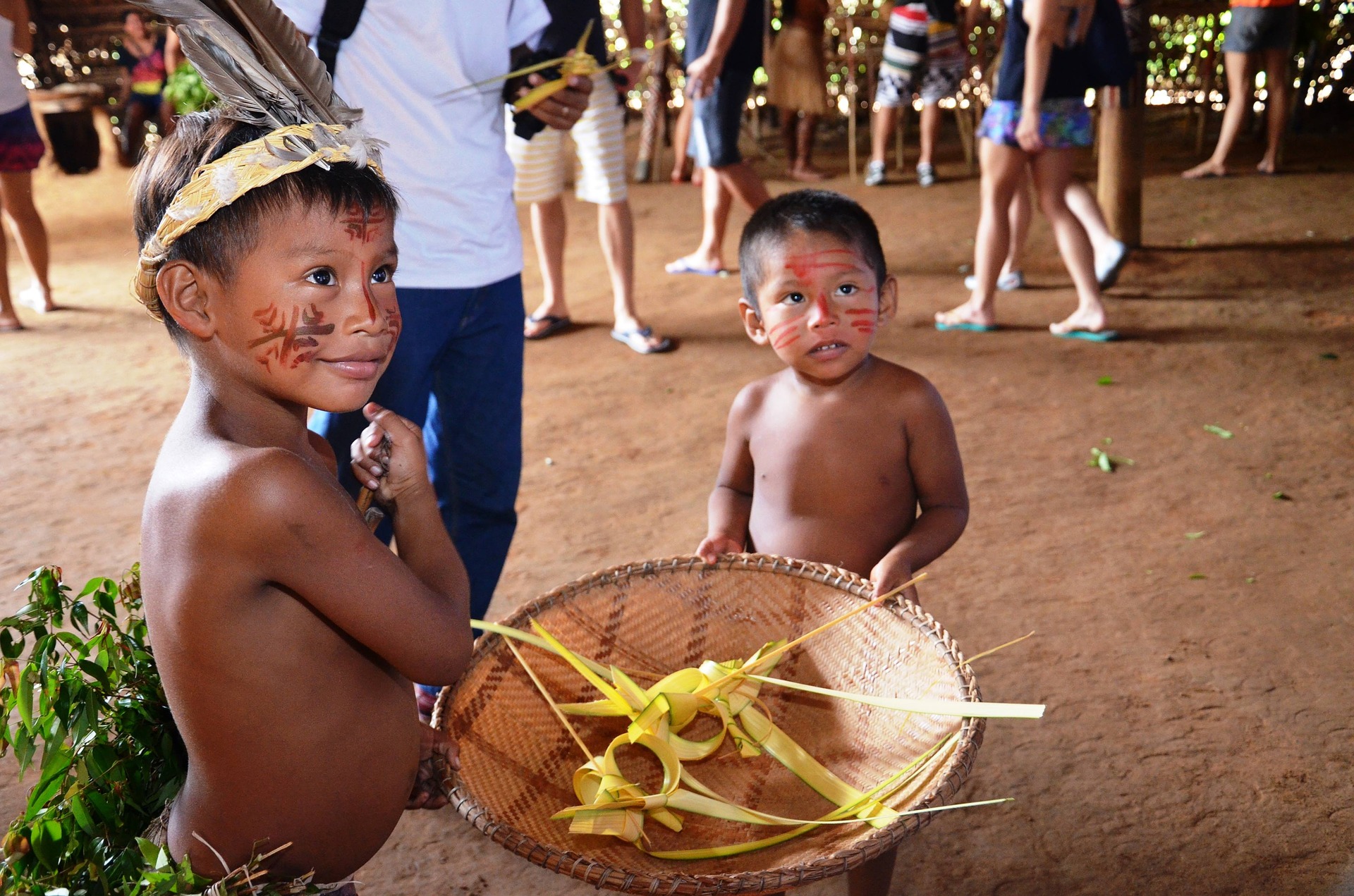Brazil: Bolsonaro challenges the Catholic Church
Brazilian President Jair Bolsonaro’s opposition to the Catholic Church is coming to a head over the Amazon.
Brazilian President Jair Bolsonaro’s opposition to the Catholic Church is coming to a head over the Amazon. The following article was published in the July-August 2019 issue of NewsNotes.
Jair Bolsonaro is the first Brazilian president to participate in the March for Jesus that united close to three million evangelicals in Sao Paulo this year. In his speech, he thanked the faithful for their support and said, “You were decisive in changing the destiny of this marvelous homeland Brazil.”
A Catholic, Bolsonaro has actively courted evangelical voters, even being baptized in the Jordan River by Pastor Everaldo Pereira, president of the conservative Social Christian Party, and continues to receive the support of many important evangelical leaders. Yet he has a rockier relationship with the Catholic church, which he considers to be part of the opposition due to its longstanding support of marginalized communities and, historically, the Workers Party.
Since its foundation in 1952, a time of the burgeoning of liberation theology, the National Conference of Brazilian Bishops (CNBB, in its Portuguese initials) has indeed been known for its progressivism at the grassroots as well as episcopal levels. While the hierarchy has become more conservative and inward facing since the 1980s, the grassroots continue to be active, though with a much smaller impact.
Despite this shift, Bolsonaro, who often waxes nostalgically of the days of the dictatorship (when the Church was more outspoken), still sees the CNBB as part of the opposition. A video released during the 2018 electoral campaign showed Bolsonaro talking about the need to reduce the size of indigenous reserves in order to increase economic development and complaining about the support indigenous communities receive from the United Nations as well as the Brazilian bishops’ Indigenous Missionary Council (Conselho Indigenista Mission, CIMI) and the CNBB, calling them “the rotten part of the Church, to speak in clear Portuguese.”
The Bolsonaro administration is especially concerned about the Synod on the Amazon, an assembly of Catholic bishops that will take place in Rome in October. The bishops and invited guests (religious men and women, indigenous community leaders) are expected to discuss environmental, indigenous and climate change issues as well as church issues in the nine Latin American countries that make up the Pan-Amazon region. The administration views the Synod as an attack on national sovereignty and is concerned that the Synod will be an opportunity for the Church to criticize the Brazilian government in an international setting.
“We are worried and want to neutralize that there,” said Augusto Heleno, chief minister of the Institutional Security Cabinet (known as the GSI in Portuguese). “The question will be the object of careful study by the GSI. We are going deep into this.” Members of the military and intelligence officers have participated in preparatory meetings for the Synod, never speaking, but attending workshops and taking notes.
Bolsonaro even requested that he be able to participate in the Synod, something that has never been done by a head of state. Retired Bishop Erwin Krautler, an Austrian-born missionary who led the Diocese of Xingu in the Brazilian rain forest from 1981-2015 and one of the authors of the working document for the Synod, asked rhetorically, “What will a representative of the government say when we are talking about new paths for evangelization?” The CNBB instructed Bolsonaro to send his request through the Vatican’s embassy in Brasilia.
With no invitation to attend and no way to participate in the Synod, Bolsonaro is reportedly considering organizing a rival symposium in Rome to “show Brazil’s concern for the Amazon and its indigenous peoples” days before the bishops meet.
In May, the CNBB held elections for new leadership and there was a possibility that the conservative wave that put Bolsonaro in office would bring in conservative leaders who would focus more on internal church issues instead of social realities. Yet archbishop Walmor Oliveira de Azevedo, a moderate from the state of Bahia, won the vote indicating that the bishops will maintain their support for indigenous and other marginalized communities as well as the environment, which, with the current administration, means inevitable conflicts with the government.
For example, Bolsonaro’s desire to create a “Dubai in the Amazon” where the government would encourage and partially finance five economic poles in the region: biopharmaceutics and cosmetics, tourism, defense, mining, and fisheries would inevitably create conflicts with communities there and the Church that supports them.
“It’s not that the Church is against the government,” explains Maryknoll Lay Missioner Flavio Jose Rocha, a Brazilian, “but the Church is commited to upholding human dignity and when government policies worsen the lives of people, we are called to respond based on gospel values.”

